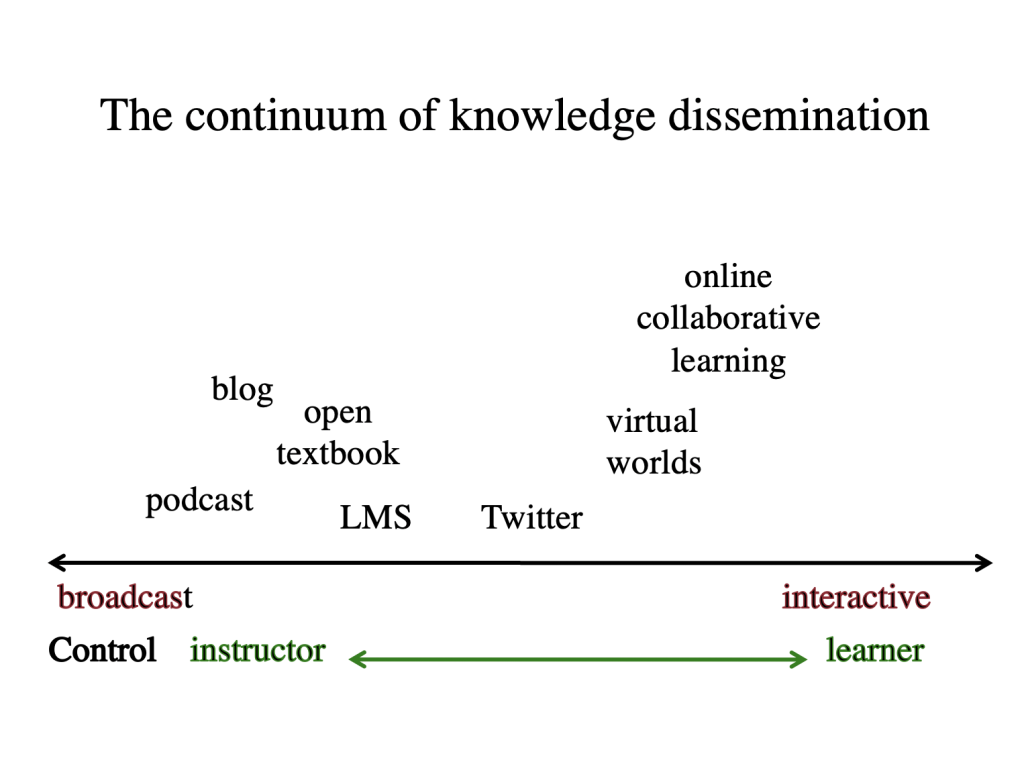129
From the list below:
- a learning management system
- a blog
- online collaborative learning
- virtual worlds
- a podcast
- an open textbook
1. Determine which is a medium and which a technology, or which could be both, and under what conditions.
| learning management system | either: technology as software, medium when used for course delivery |
| blog | medium (WordPress or other blog software is the technology) |
| online collaborative learning | medium |
| either, but mainly a medium | |
| Virtual worlds | medium |
| podcast | medium |
| open textbook | medium |
2. Decide where, from your experience, each medium or technology should be placed on Figure 7.5.3. Write down why.

3. Which were easy to categorize and which difficult?
Difficult:
- online collaborative learning, because it is highly communicative but the teacher has a good deal of control over the medium
- Twitter, because it is definitely under the control of the user and is a one-to-many medium, but it is also as much an interactive medium as a broadcast medium
- virtual worlds, because the overall design cannot be changed (broadcast) but users are very interactive with the learning environment
- blogs can be used both by an instructor or by a learner. Comments can be made to blog posts by others than the author, but only the author can change the blog post itself.
4. How useful?
Understanding where different media are likely to fit on the broadcast/interactive communications dimension will help in choosing media, depending on my epistemological position. If I want a high level of student activity and interaction I would tend toward more interactive communications media. If I am more concerned with information transmission and comprehension, I would tend to use more broadcast media. However, in most cases I would want a mix of both. Knowing where each medium ‘fits’ on this dimension is one component I could use in my decision-making.
